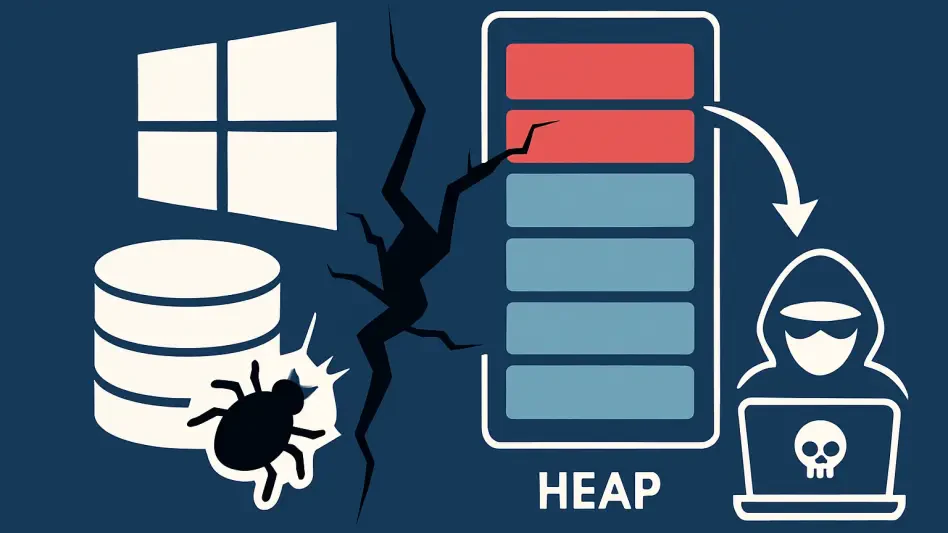In a rapidly evolving digital landscape where cyber threats continually grow in sophistication and frequency, system security remains a top priority for organizations worldwide. Recent discoveries of critical vulnerabilities in OpenSSH, a widely used open-source implementation of the Secure Shell (SSH) protocol, have raised significant concerns. These vulnerabilities predominantly center around the risks of Man-in-the-Middle (MitM) and Denial of Service (DoS) attacks, posing substantial threats to remote systems.
Unveiling the Vulnerabilities
CVE-2025-26465: A Gateway for Man-in-the-Middle Attacks
The first vulnerability, identified as CVE-2025-26465, impacts OpenSSH versions 6.8p1 to 9.9p1, specifically when the VerifyHostKeyDNS option is enabled. This vulnerability has a CVSS score of 6.8 and has the potential to facilitate Man-in-the-Middle attacks. Attackers can intercept connections, pose as the target server, and trick the client into accepting a fake server’s key due to poor error handling within OpenSSH. This weak error handling allows attackers to steal login credentials, inject malicious commands, and access sensitive data without the user’s awareness.
Despite the VerifyHostKeyDNS setting being the primary trigger, the vulnerability can still exploit the system even when the setting is disabled. This exploit requires no user interaction, making it particularly dangerous since it can bypass ordinary security protocols. It’s critical to understand that during the key exchange process, OpenSSH’s failure to restrict memory usage contributes significantly to the vulnerability’s potency, allowing attackers to manipulate the system with relative ease.
CVE-2025-26466: Overwhelming Systems with Denial of Service Attacks
The second vulnerability, CVE-2025-26466, affects both the OpenSSH client and server in versions 9.5p1 to 9.9p1. With a CVSS score of 5.9, this vulnerability enables attackers to conduct Denial of Service attacks. By flooding the system with small ping messages, an attacker can cause excessive memory and CPU consumption, ultimately leading to a system slowdown or crash. The inherent design flaws in OpenSSH related to the ping handling process exacerbate this issue, as the system fails to properly manage incoming ping requests, allowing the attack to overwhelm available resources quickly.
Qualys, the cybersecurity firm uncovering these vulnerabilities, noted that during the testing phase, it was evident that OpenSSH’s lack of proper memory usage restriction during the key exchange process further complicates security. The excessive demands placed on the system’s resources make it susceptible to more potent forms of DoS attacks, posing a persistent risk to both individual users and enterprise systems alike.
Mitigation and Recommendations
Upgrading to the Latest Version
In response to these vulnerabilities, OpenSSH promptly addressed the issues in version 9.9p2. Users are strongly advised to upgrade to the latest version to mitigate the risks associated with CVE-2025-26465 and CVE-2025-26466. By implementing the update, users can benefit from improved security protocols and defenses against potential attacks. However, upgrading alone may not be sufficient for comprehensive security, and additional measures should be considered to ensure robust protection.
Implementing Additional Security Measures
In addition to upgrading to the latest version, it is recommended that users disable the VerifyHostKeyDNS option unless absolutely necessary. This step lowers the risk of MitM attacks facilitated by the CVE-2025-26465 vulnerability. Furthermore, adopting manual key fingerprint verification for secure SSH connections can enhance the security of communications by ensuring that only trusted keys are accepted during the connection process, preventing unauthorized access.
System administrators are also encouraged to implement strict connection rate limits. By doing so, they can reduce the likelihood of DoS attacks like those enabled by the CVE-2025-26466 vulnerability. Monitoring SSH traffic for unusual patterns is another critical step in deterring potential attacks. Early detection of abnormal activities can enable prompt responses, mitigating the potential damage caused by such security breaches. Administrators should continuously review and enhance their security policies to stay ahead of evolving cyber threats.
Conclusion
In today’s fast-changing digital world, where cyber threats are becoming increasingly sophisticated and frequent, maintaining robust system security is crucial for organizations globally. Recently, experts uncovered critical vulnerabilities in OpenSSH, which is a widely used open-source implementation of the Secure Shell (SSH) protocol. These findings have sparked significant concern due to the potential exploitation of these weaknesses. The primary vulnerabilities are associated with Man-in-the-Middle (MitM) and Denial of Service (DoS) attacks. These types of attacks are particularly dangerous as they can disrupt remote systems and compromise sensitive data. Ensuring the security of OpenSSH and other critical tools is paramount to safeguarding organizational infrastructure from these evolving threats. The constant advancements in cyberattack techniques underscore the importance of continuous vigilance and regular updates to security protocols. Addressing these vulnerabilities promptly is essential in preserving the integrity and security of remote communications.







